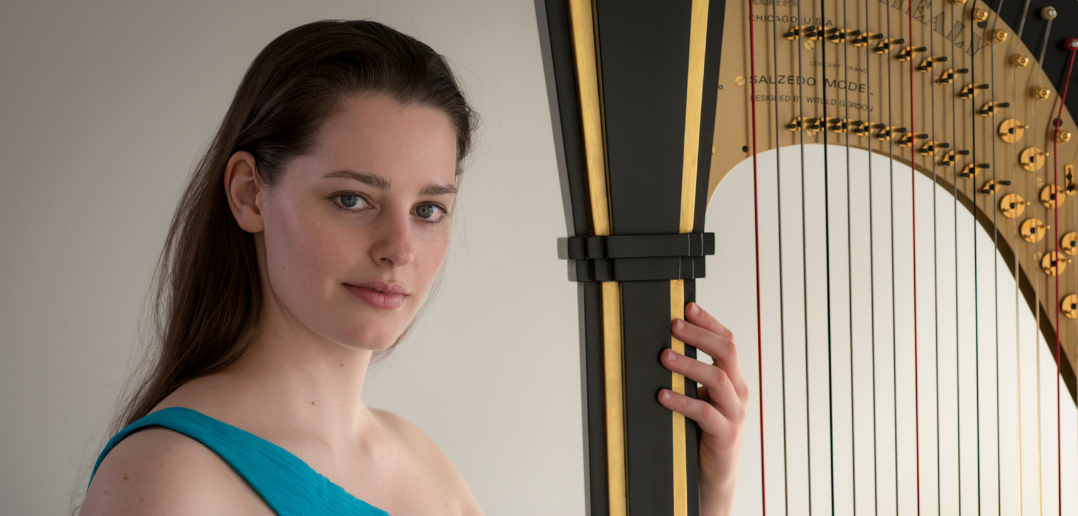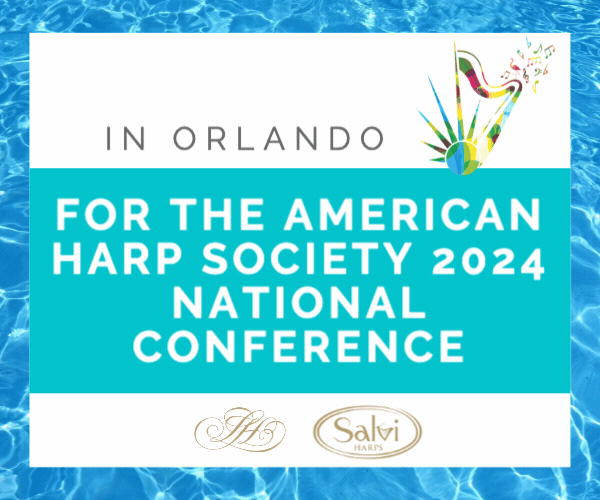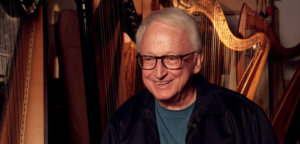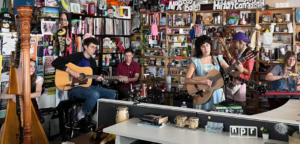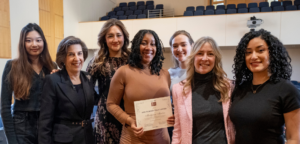The American Harp Society Summer Institute is exactly three weeks away, which means Abigail Kent is wrapping up her two years as the AHS Concert Artist. With the national competition set to take place June 16–19, we wanted to get her take on the experience and find out what exactly those past two years have looked like.
For people who don’t know, share with us what being the AHS Concert Artist entails.
The title of American Harp Society Concert Artist is awarded to the first place winner of the young professional division of the AHS National Solo Competition every other year at the summer institute. For the next two years, the concert artist will visit various chapters across the US and Canada, giving recitals and masterclasses. This opportunity gives the concert artist a taste of what the life of a touring recitalist is like. To me, this “learning by doing” process has been invaluable and a wonderful part of being the concert artist.
The program is a wonderfully supported and well–organized project of the American Harp Society, which looks to raise the standard for harp performance in the competition. This program works hard to fundraise in order to pay for the concert artist’s travel expenses. Their goals for the concert artist are much more than just growth in performance prowess. Many of the skills that the program strives to develop in the harpist over the two–year tour are refining time management, effectively programming a concert, booking flights/trains/bus travel, focusing on stage presence, meeting members of AHS chapters around the country and developing new relationships, and advocating as an ambassador for the harp.
Do any cities or concert experiences stick out to you? What was your favorite place to visit?
The cities that I remember the most usually involved lots of varied activities, including multiple masterclasses, lessons, and working with young harpists in some way.
I loved getting to know all the students in Utah at the Utah Harp Festival as well as the middle school, high school, and college level harpists in Odessa, TX. My most recent trip to New Orleans also resulted in a lot of teaching and performing—and I even found time on my last evening to enjoy great music in the various jazz bars in the French Quarter! One of the more humorous memories is from Phoenix, where I was quite sick and had to leave the stage to deal with a coughing fit that lasted for about 5–10 minutes (which thankfully only happened between pieces). I eventually soothed my throat with a cough drop and went back to finish the rest of the concert!
What has been most surprising about the past two years as the concert artist?
The most surprising moment of my time as concert artist was my very first masterclass. I had never formally taught before, but I ended up running out of time for everything I wanted to work on with each student! I just really enjoyed the process of teaching and didn’t want it to end! Because of this discovery of my love of teaching, I have chosen to pursue further education and will start my doctorate degree in the fall. I hope to teach someday at the collegiate level.
Any tips you’d like to share for those competing for the next spot (or for the next winner!)?
For those competing, do whatever puts you in the best mind frame to share your music with the audience, whether that be a good night sleep, meditating, yoga, or a good meal the night before. Truly think of the competition as a performance because that’s what it is—just you presenting great music! I feel that one of the greatest techniques to make your musical vision clear is to record yourself and judge what you hear as if it were someone else. It tends to show you how much more you can do in terms of musical aspects such as dynamic contrast, difference in tempo, or phrasing.
For the new concert artist, congratulations! It’s going to be a wonderful two years, and you’re going to grow so much through the whole process. Logistically, I would advise mapping out times that are freer or less stressful in the year for you, and use those times to schedule recitals for AHS. Begin using pieces you already know and are comfortable performing, and maybe add in a new piece or two as you feel comfortable. And remember to enjoy yourself during all your travels!
What’s next for you? You mentioned that you’ll be starting your doctorate?
I plan to continue to balance professional harp life with continuing my education and growing in performance skills. In the fall, I will be starting my doctorate of musical arts degree at The Juilliard School and will also continue to perform with the Charleston Symphony Orchestra and Symphony in C in New Jersey.
That’s fantastic—congratulations!






